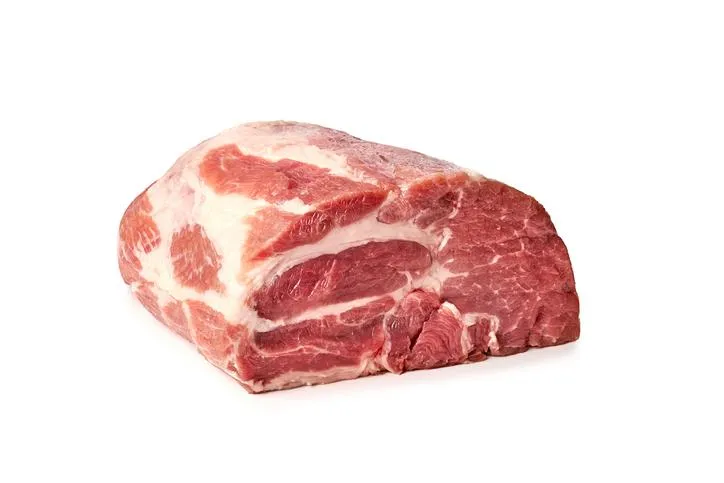
🐖 Featured Cut of the Week: Pork Shoulder
The Swiss Army Knife of the Butcher Block
If you think pork shoulder is only good for pulled pork, buckle up — because this cut is one of the most versatile, cost-effective, and flavor-packed options in the entire hog. Whether you're breaking it down at the butcher block or cooking it whole, pork shoulder gives you multiple distinct cuts that serve a wide range of techniques: BBQ, roasting, braising, pan-frying, even stews and sausage.
This isn't just the pitmaster’s go-to. It's a butcher's dream and a cook's secret weapon.
🐖 What Exactly Is Pork Shoulder?
"Pork shoulder" generally refers to the top portion of the pig’s front leg. It includes two major subprimal cuts:
Boston Butt (upper shoulder, more marbled, square-shaped)
Picnic Shoulder (lower shoulder, leaner, includes part of the leg)
Together, they make up what we often call a full pork shoulder. Whether you buy the whole thing or break it down, there are several ways to utilize it.
🔪 Butcher’s Breakdown: What You Can Get from Pork Shoulder
🍖 1. Boston Butt (a.k.a. Blade Roast)
Best For: Pulled pork, grinding, roasting, stew meat
Why It Rocks: Rich marbling and connective tissue make this a forgiving cut for slow cooks or grinds. Can also be sliced into steaks or strips for stir-fry or schnitzel.
🥩 2. Pork Collar (Money Muscle)
Best For: Sliced roast, quick-grill steaks, charcuterie
Why It Rocks: This tender section near the spine is highly prized in competition BBQ. It can be seared, sous-vide, or roasted whole. Also amazing cured or smoked for capocollo.
🧂 3. Picnic Shoulder
Best For: Braises, confit, roasting with skin on
Why It Rocks: Includes more sinew and often the skin — perfect for crispy chicharrón-style crackling. Slightly leaner than the butt, but still flavorful when cooked right.
🧄 4. Pork Shoulder Steaks
Best For: Grilling, pan-searing, Korean-style BBQ
Why It Rocks: Cut crosswise from the butt, these steaks are deeply marbled and quick to cook. Marinade-friendly and full of flavor, they’re great alternatives to chops.
🌭 5. Trim for Sausage or Ground Pork
Best For: Homemade sausage, meatballs, pork burgers
Why It Rocks: Pork shoulder has the perfect fat-to-lean ratio (roughly 70/30) for juicy, flavorful grinds. A staple in house-made sausage blends or smash patties.
🧑🍳 Not Just for BBQ: Kitchen Versatility
Beyond the smoker, pork shoulder performs across cuisines:
Italian Porchetta: Rolled and stuffed with herbs, roasted until crispy.
Japanese Tonjiru: Used in hearty miso-based soups with root veggies.
Mexican Carnitas: Simmered in fat and citrus until tender, then crisped.
Filipino Adobo: Braised with soy sauce, vinegar, and garlic for rich depth.
Don’t own a smoker? No problem. Pork shoulder loves your oven, Instant Pot, slow cooker, or stovetop braise.
💡 Pro Tips for Getting the Most Out of It
Ask your butcher for a bone-in Boston butt or picnic if you want a traditional roast or pulled pork base.
Break it down yourself to save money and get a variety of cuts from one primal.
Keep the bone and skin for broths, soups, or cracklings — they’re full of flavor and value.
🏁 Final Thoughts: One Cut, Endless Possibilities
Pork shoulder isn’t just the workhorse of the pit — it’s a whole toolkit in one primal. From steaks to sausage, soups to slow-roasts, it adapts to nearly every cuisine and every cooking style.
If you’re looking to maximize flavor, versatility, and value — this is the cut to master.
📚 Start with our [Pulled Pork Recipe from Basics with Beatdown] and stay tuned — this summer we’re breaking down every cut worth knowing, one delicious recipe at a time.
